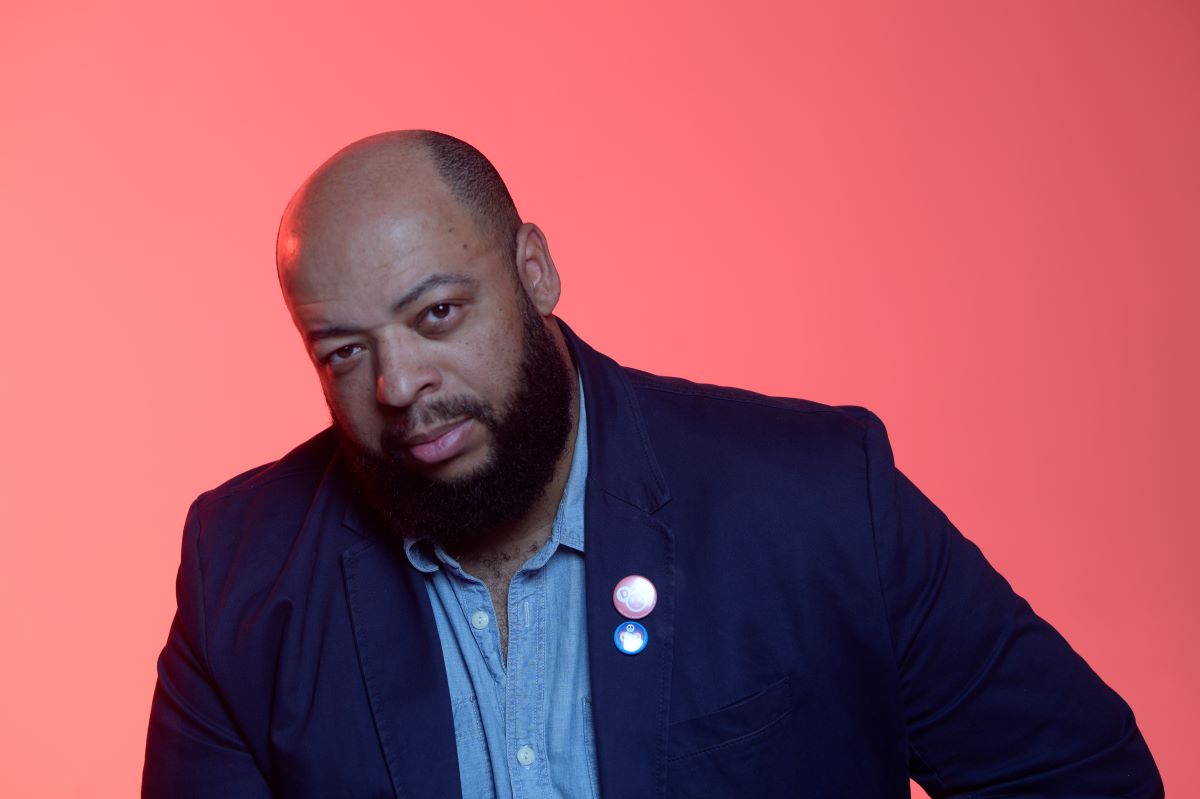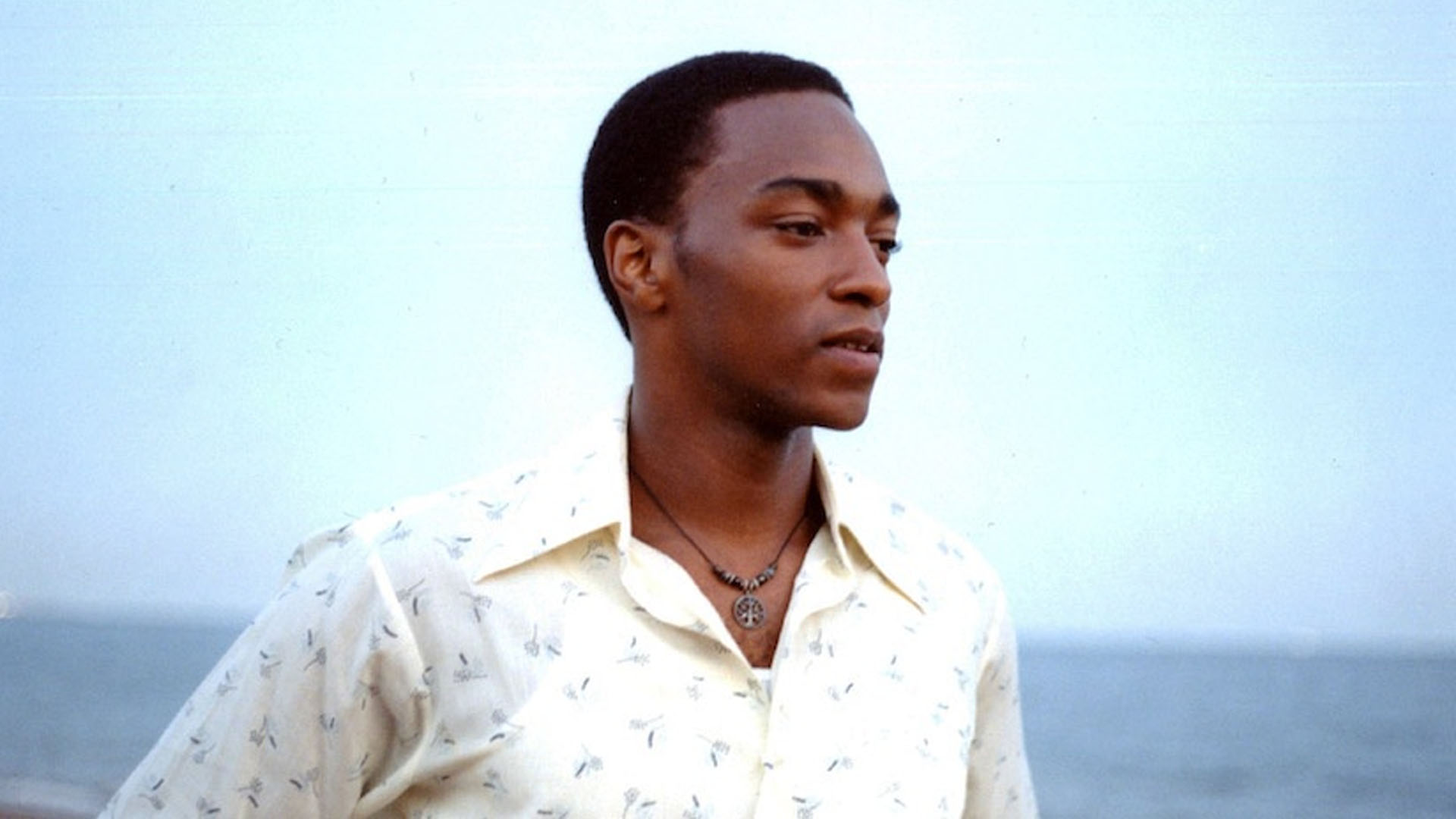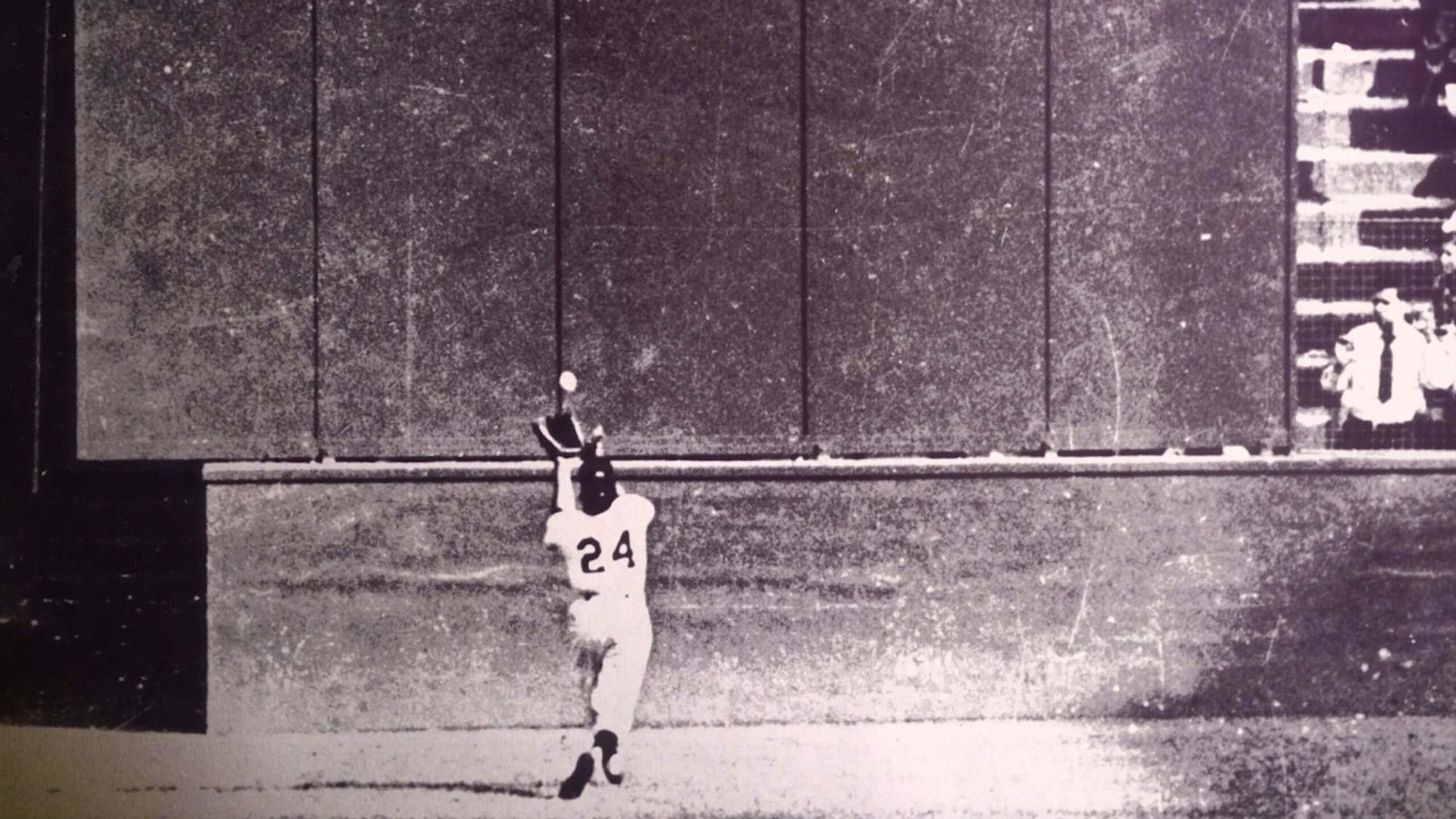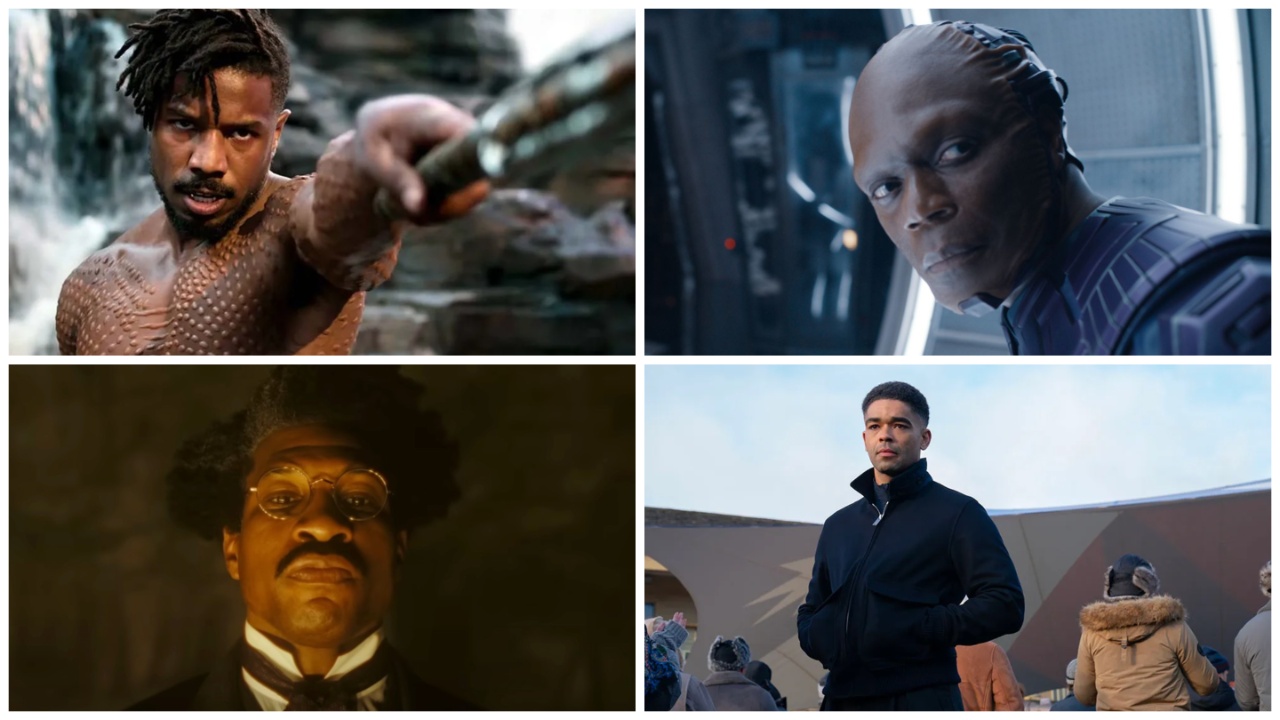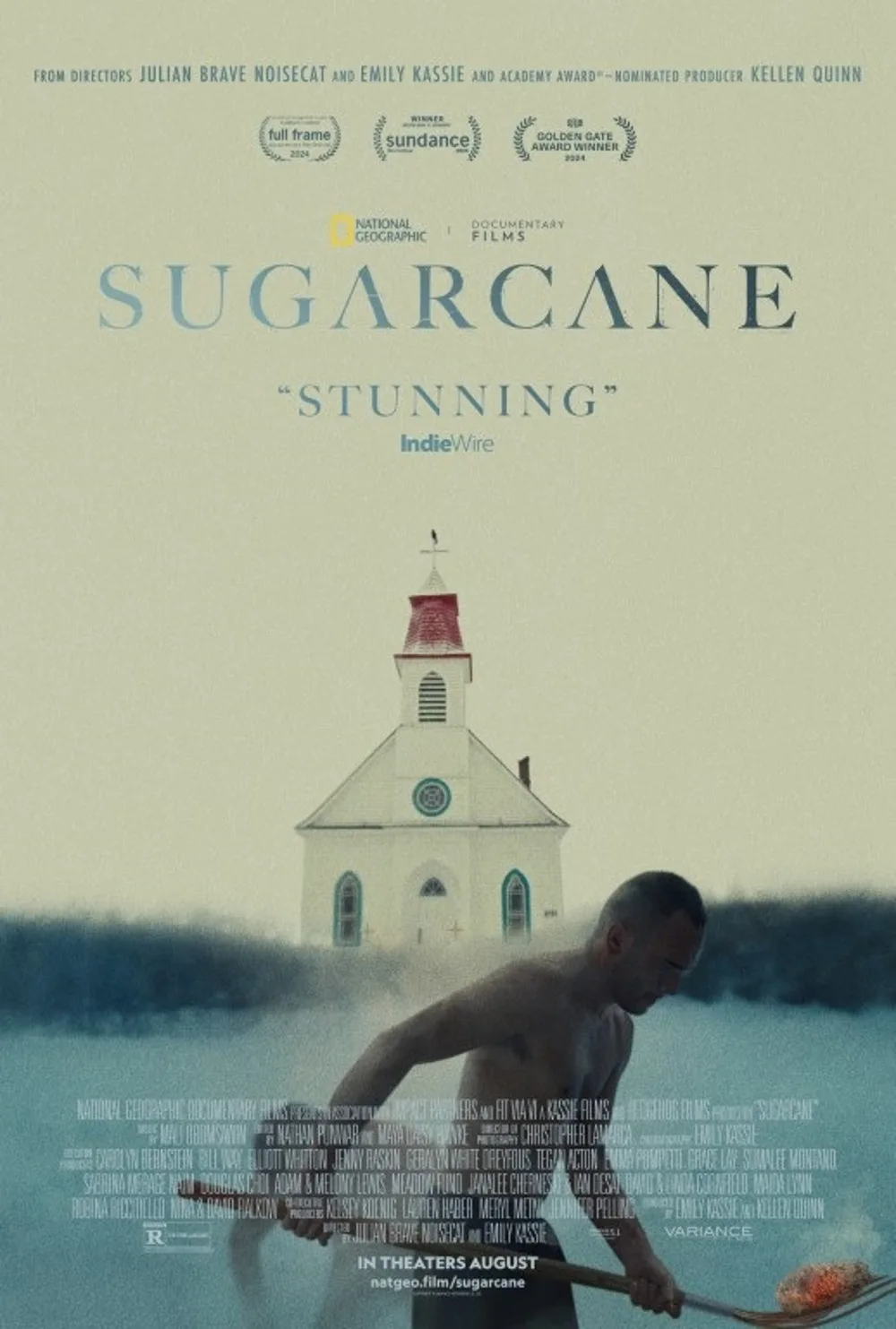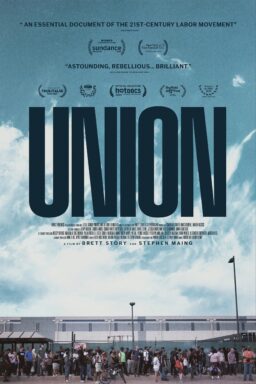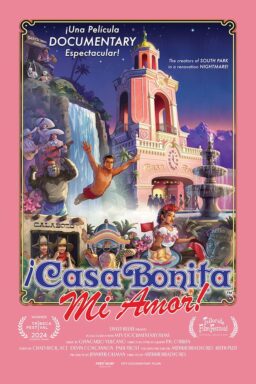When a new generations begins to take shape, usually when adolescence has begun to pass through the bulk of its ranks, there's a bit of a frenzy to define it. We want to name it, characterize it, market towards it. But those names often fall by the wayside (remember "Gen-Y"?). We cannot even truly understand how profoundly the historical events that forge a generation affect it until a few decades have elapsed. What we thought about Baby Boomers in the 1970s is markedly different from what we thought of them in the 2000s.
That moment of reappraisal and reckoning has arrived for my generation, which has been known by the unusually durable moniker of Generation X. Months ago I was asked by Melissa Tamminga, the program director for the venerable Bellingham, Washington community arthouse theater the Pickford Film Center, if I wanted to guest program a monthly series. The first thing I thought about was the work of African-American Gen-X filmmakers. And since then, talk about Gen-X has exploded. Just weeks ago, the Los Angeles Philharmonic announced a program of all Gen-X orchestral composers.
The timing makes sense. The term "Generation X," as applied to the people born between the mid-1960s and late 1970s (later, generational creep would move the demarcation line to 1982), emerged in 1991 when Canadian author Douglas Coupland published the novel Generation X: Tales of an Accelerated Culture about the young people coming of age in the wake of the Go-Go Eighties and the Me Decade before that.

And just as the term was taking root (after mercifully usurping the previous generational sobriquet that was "The MTV Generation") African-American Generation-X filmmakers were making their debut. It all started with John Singleton and his landmark debut "Boyz N the Hood," which was released in July of 1991 to great acclaim and made Singleton the youngest person to be nominated for the Academy Award for Best Director at the age of 24.
Just before Singleton, Matty Rich (b. 1971) appeared with his debut feature "Straight Out of Brooklyn," made with grit, determination, $450,000, and one month of film school. One film was independent, the other was a studio film, but they both signaled the same thing: the Gen-X African-American auteur had arrived.
Of course, these films were forged by many social forces and the reverberations of historic shifts. First, Generation X itself was famously summed up as the children of Watergate, Vietnam, the aftermath of the Civil Rights/Black Liberation Movements, the dawn of the Gay Rights Movement, Second Wave Feminism, and divorce. We were a significantly smaller generation than the Baby Boomers who had come before us. And in many ways we had to fend for ourselves. We were the Latchkey Kids who usually came home to an empty house and let the television babysit us until a parent arrived. In time we would find ourselves dwarfed on both sides as the Millennials came to outnumber us by significant margins. The ‘60s Boomer experience had a dual impact on us: it provided an near-unattainable standard for social activism, and it also gave us a post-'60s cynicism that defines us to this day. Utopianism, we were taught in ways both tacit and explicit, was a fool's preoccupation. This is as good as it gets and if you don't accept that and get with the program you're a bigger fool than the aging hippy burnouts held up for derision in so much of pop culture.
Cinematically, Gen-X means the Children of the Blockbuster. The Spielberg/Lucas betrayal of New Hollywood was undeniably formative even if eventually we began drifting back to the ‘70s Cinema that came before. We were fed a cinema of happy endings and that only created a hunger for anti-heroes and moral ambiguity. By the early ‘90s, three new movements had begun that would forever shape my generation of filmmakers: New Black Cinema, culminating with the 1992 release of Spike Lee's "Malcolm X" (which ran parallel to the rise of the first generation of hip-hop), New Queer Cinema, and the American Independent Movement.
All of this led to a fairly reliable set of filmmaking traits: an interest in pastiche, a complicated relationship to Hollywood formula, and a friction between cynicism as a default and trying to reclaim idealism from the previous generation. As the vanguard of Black Gen-X cinephiles, Rich and Singleton also prophesied the degree to which my generation of filmmakers would choose the film school path even if sometimes that choice didn't result in a degree. It makes sense given the intense pressure Black Gen-X grew up with that its white counterparts did not. We were told that the storied sacrifices of the elders were for our benefit and now it was our duty to make sure that the post-dated check didn't bounce when it was finally cashed. We were expected to go to school, get degrees, and honor the blood literally shed in the past with achievement in the future. Black Gen-X also developed an eclecticism that I think separates us from earlier generations. We were the first generation to grow up with cable television and home video, and I think that exposed us to a wide array of media in ways similar to film school.

In the last 30 years, we have seen movement even though there have been periods of inertia. The 2010s saw the first Best Picture winners helmed by Gen-X directors (that distinction goes to "The King's Speech"). And it wasn't until "Moonlight" that a film helmed by an African-American Gen-X'er (Barry Jenkins, b. 1979) won the big prize at the Academy Awards (Steve McQueen, b. 1967, is also an X'er but not American). By the end of that decade we had an impressive roster of Black X-er's making films that made money but also won critical acclaim. They include Ava DuVernay (b. 1972), Gina Prince-Bythewood (b. 1969), George Tillman, Jr. (b. 1969), Boots Riley (b. 1971), Dee Rees (b. 1977), Shola Lynch (b. 1969) and the big earners Tyler Perry (b. 1969), F. Gary Gray (b. 1969), and Tim Story (b. 1970), among many others.
But when it came time for me to pick four films from my cohort, I decided to cast my net elsewhere. I know these movies well, and I decided to highlight excellent debut films by Black X'ers whose work may not have broken into the mainstream but were every bit as accomplished as the films by Black X'ers who had.

"Night Catches Us" (2010) was the first film I programmed, and it embodies Gen-X Black indies perfectly. Written and directed by Columbia Film School alumna Tanya Hamilton, this period film is set just before the election of Jimmy Carter in Philadelphia, it tells the story of a former Black Panther (Anthony Mackie) who has returned to the old neighborhood after the death of a Fred Hampton-like charismatic leader he may have betrayed. For the program, I wrote "To be a Gen-X African-American is to grow up in the shadows of legends. Our youth was dominated by stories of the past and the larger-than-life figures that shaped it." In this sense, Hamilton writes from the perspective of Black X'ers trying to understand a now-mythologized past and come to terms with the actual humans who lived it. Her poetic eye brings an unexpected beauty to the urban decay. It's a smashing debut.
Next I picked Brown and Cal Arts alumnus Rodney Evans' (b. 1971) striking debut "Brother to Brother" (2004), which also highlights Black Gen-X's attempt to understand and see ourselves in a mythologized history that threatens to overwhelm us. Anthony Mackie plays a queer college student and poet doing battle with Black Nationalist-infused homophobia in the classroom and in his own family. He befriends an elderly homeless Black man who turns out to be Bruce Nugent (played by the late Roger Robinson), a semi-forgotten writer/painter of the Harlem Renaissance. Evans' ambition for this film is pretty staggering. He handles Black queer identity in all of its complexity, the role of art in social movements, and manages to pull off period storytelling on a small budget.
Aaron Woolfolk (b.1969) another Columbia alum, has been a dear friend of mine since we met at the 2000 Hollywood Black Film Festival where we both had short films in competition. He was a kindred spirit who shared my eclectic sensibilities and passion for film. The short films he had in the festival "Eki," and "Kuroi Hitsuji (Black Sheep)" were the prologues to a feature-length film he would go on to make, but they stood out because they were shot in Japan and told the story of an African-American man working there as an English teacher. Aaron wrote these shorts based on his own experience. Eventually this led to his feature debut "The Harimaya Bridge" (2009), starring Ben Guillory, Saki Takaoka, Misa Shimizu, and Danny Glover. The first feature by an African-American to ever be shot largely in Japan, Woolfolk's feature centers not the Black Gen-X English teacher abroad, but his embittered Baby Boomer father who has come to Japan to settle the affairs of his son who died there. The movie starkly depicts the way Boomers inherited some of their parents' prejudices and shows that African-Americans are just as capable of treating racial prejudice as a family heirloom as anyone else. Once again, Black Gen-X filmmakers often have preoccupied themselves not with our own story in trying to come to grips with the history we've inherited and an attempt to break cycles that have thrived for generations.

Finally, I picked "Yelling to the Sky" (2011), the feature directorial debut of Victoria Mahoney (b. 1970) which premiered at the Berlin International Film Festival. The film starred Zoe Kravitz in her first leading role as Sweetness O'Hara, a troubled teen from a home plagued by violence and mental illness. Mahoney embodied X-ness by taking the largely defunct ‘Hood sub-genre and making it her own, complicating it by having a protagonist who was a young woman and of mixed race. Mahoney brings the visual style of a veteran to the proceedings. The harrowing opening scene in which Sweetness is violently bullied and rescued by her older sister is absolutely gripping. It's no surprise watching that scene to learn that Mahoney performed second unit directing duties on "Star Wars: The Rise of Skywalker" and will helm the sequel to Gina Prince-Bythewood's 2020 Netflix actioner "The Old Guard."
Millennial filmmakers are a presence now and Gen-Z isn't far behind. Gen-X is making its mark artistically and at the box office. If you look at the current top five box office earners (not adjusted for inflation), Boomer James Cameron stands alone, beset by X'ers. Much has been made of the fact the dystopian years since 2016 were Gen-X's moment to shine as we have lived with the specter of annihilation, whether by nuclear weapons or AIDS, most of our lives in a way Millennials and Zoomers haven't.
Perhaps our final phase of filmmaking will see us rise to the challenge of these times. Gen-X will never inherit the Earth the way the Boomers did or the Millennials will, but that was never our destiny. We have always been a bridge between two large generations, between the 20th century and the 21st century, between analog and digital, between the canon and the post-canon era. We are the first digital citizens but we also remember what monoculture was like and the era before the remote control. That's what makes us unique. I look forward to seeing what my cohort of filmmakers, especially the African-American auteurs, bring across that bridge.
